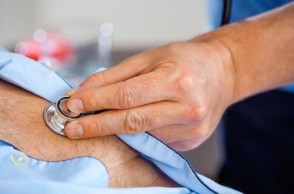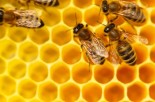Canceled Clients (4762)
Children categories

Train Your Body (438)
The show for fitness buffs or beginners. Expert guest from the American College of Sports Medicine (ACSM) discuss all areas of fitness, nutrition, athletics and sports medicine.
View items...
Staying Well (382)
RadioMD’s “talking” Health A-Z hosted by senior health correspondent, Melanie Cole, MS. Melanie interviews experts in the world of health, wellness, fitness and medicine.
View items...
Healthy Talk w/ Dr. Michael Smith (698)
Integrative physician, Michael A. Smith, MD is committed to providing listeners with the most current health information available.
View items...
Naturally Savvy (899)
Registered Holistic Nutritionist, Andrea Donsky and health expert Lisa Davis discuss their passion for living a natural, healthy lifestyle.
View items...
Eat Right Radio (48)
EatRight Radio, with experts from the Academy of Nutrition and Dietetics, discusses food and nutrition topics, healthy weight, allergies and health conditions, healthy aging, food safety and so much more. Give us 10-minutes and we'll give you the important information and expert advice from registered dietitian nutritionists to help you eat right, feel better, and live a healthier life. Hosted by Melanie Cole, MS.
View items...
Sharecare Radio (235)
Sharecare Radio, hosted by Sharecare’s own Dr. Darria Long Gillespie, SVP of Clinical Strategy at Sharecare, will appear live every Tuesday from 12 to 1 p.m. EST on RadioMD. Dr. Darria will break down the top health news of the week, pull in experts from around the country on a wide array of health topics and answer listeners’ live questions on all things health.
View items...
Wellness for Life (455)
On Wellness For Life Radio you will learn practical, easy-to implement tips to improve your life and start feeling better — the natural way.
View items...
The Wizard of Eyes (163)
Dr. Robert Abel Jr. talks about many of the important and unrecognized parts of our visual system which we so often take for granted. The show covers the usual common ocular disorders with an East/West approach to both prevention and therapy. The eye-brain connection is presented with information about memory retention, Alzheimer's, the myopia epidemic, and many more subjects. Dr. Abel discusses how the eye and vision are connected with remote parts of the body including your gut flora, musculoskeletal system, blood pressure, drugs and lifestyle. practical and simple health tips.
View items...
Code Delicious with Dr. Mike (135)
Code Delicious with Dr. Mike breaks all the rules. Unabashedly confronting the questions, concerns and conundrums that continually confuse both public and experts alike; Dr. Mike takes us on a tasty trip of inquiry.
View items...
CLEAN Food Network (98)
This show is a call to action for all the clean eating revolutionaries that care about their health and how and what they eat. Non-GMO, natural, organic . . . food the way nature intended. The clean food movement is huge and is growing exponentially. This companion program talks to experts in food preparation, healthcare, celebrities, and even those companies that care enough to provide the best, wholesome, organic foods and groceries.
View items...
Talk Healthy Today (213)
Looking to create your best self? Whether it’s good-for-you lifestyle hacks, smarter ways to supplement, or tasty tips to fuel optimal health, Talk Healthy Today brings you the latest research, tools, and common sense tips you need to get and stay healthy... starting today!
View items...
Be a Doer (17)
Be A Doer features master coach and TV personality John Abdo as he shares health and fitness tips aimed at getting you in shape – and keeping you there!
View items...The Power of Probiotics (3)
Probiotics is a major global industry. But like any industry, it had to have a beginning. Natasha Trenev is the daughter of an Eastern European family where the manufacturing of yogurt was a generational business. When Natasha emigrated to the US in the 1960’s, she brought with her 750 years of family experience with probiotics – and introduced the science (and the term itself) to her new country. Today, Natasha’s California-based Natren, Inc. is the recognized pioneer in probiotics and company founder Natasha Trenev has earned recognition as the Mother of Probiotics. Her more than 50 years of work in natural health is at the core of the unparalleled success of her company – and you will benefit from her depth of expertise in each and every episode of THE POWER OF PROBIOTICS.
Probiotics are live microrganisms that are commonly referred to as ‘friendly,’ ‘good’ or ‘healthy’ bacteria that function to help maintain the natural balance of organisms in the intestine. Throughout Natasha’s extensive work in the field of probiotics, she has always been amazed by how nature provides the very ‘good’ bacteria that can help overpower ‘bad’ bacteria to keep our digestive tracts functioning at peak performance. Properly cultivating friendly bacteria and ensuring their potency is at the core of the Natren Process. Natren is cited – by retailers, by the medical community and by consumers – as the best probiotic supplement available. Only Natren carefully chooses its probiotic cultures, formulates and manufactures its industry standard probiotics in its own plant and utilizes a specially-formulated oil matrix to protect probiotics bacteria to survive until they reach their destination in the upper small intestine. This is why only Natren is the most trusted probiotic supplement on the market. Truly, where other probiotic supplements promise – Natren Delivers.
To learn more about how probiotics can benefit your health, we are proud to introduce you to THE POWER OF PROBIOTICS with The Mother of Probiotics, Natasha Trenev.

Your Brain Health (24)
Noted Los Angeles-based neuroscientist and media personality Dr. Kristen Willeumier launches Your Brain Health with Dr. Kristen Willeumier, a podcast series that explores the latest news and information in the burgeoning science of brain health.
View items...Additional Info
- Segment Number 1
- Audio File healthy_talk/1509ht2a.mp3
- Organization Life Extension
- Guest Website Healthy Talk MD
- Length (mins) 10
- Waiver Received No
- Internal Notes NO GUEST
- Host Mike Smith, MD
Additional Info
- Segment Number 3
- Audio File sharecare/1509sc2c.mp3
- Featured Speaker Randolph P. Martin, MD
- Guest Website Piedmont
-
Guest Bio
 Dr. Martin is one of the pioneers in the field of Noninvasive Cardiology, using ultrasound – echocardiography – to diagnose cardiovascular conditions. Dr. Martin has served on the faculties of Stanford University School of Medicine, the University of Virginia School of Medicine, Charlottesville, Virgina, The Mayo Clinic, Rochester, Minnesota, and for 20 years at Emory University School of Medicine, where he holds the title of Professor of Medicine Emeritus. Dr. Martin currently serves as the Medical Director of Cardiovascular Imaging and Chief of Structural & Valvular Heart Disease at the Piedmont Heart Institute. In addition, Dr. Martin was appointed Physician Principal Advisor, Educational Programs, Marcus Heart Valve Center at the Piedmont Heart Institute. Dr. Martin also serves as a member on Sharecare’s Advisory Board.
Dr. Martin is one of the pioneers in the field of Noninvasive Cardiology, using ultrasound – echocardiography – to diagnose cardiovascular conditions. Dr. Martin has served on the faculties of Stanford University School of Medicine, the University of Virginia School of Medicine, Charlottesville, Virgina, The Mayo Clinic, Rochester, Minnesota, and for 20 years at Emory University School of Medicine, where he holds the title of Professor of Medicine Emeritus. Dr. Martin currently serves as the Medical Director of Cardiovascular Imaging and Chief of Structural & Valvular Heart Disease at the Piedmont Heart Institute. In addition, Dr. Martin was appointed Physician Principal Advisor, Educational Programs, Marcus Heart Valve Center at the Piedmont Heart Institute. Dr. Martin also serves as a member on Sharecare’s Advisory Board.
- Length (mins) 10
- Waiver Received No
- Host Darria Long Gillespie, MD, MBA
Additional Info
- Segment Number 4
- Audio File sharecare/1509sc2d.mp3
- Featured Speaker James H. Fowler, PhD
- Guest Website J Fowler
-
Guest Bio
 James H. Fowler, PhD, is a social scientist who conducts research on social networks, political participation, the evolution of cooperation, and genopolitics (the study of the genetic basis of political behavior). He is a Professor of Genetics in the Department of Medicine and a Professor of Political Science in the Division of Social Sciences at the University of California, San Diego. He holds graduate degrees from both Harvard and Yale, and he also served for two years as a Peace Corps Volunteer in Ecuador. Fowler also published a study last year in PLOS ONE that validated Sharecare's scientifically based health risk assessment, the RealAge Test.
James H. Fowler, PhD, is a social scientist who conducts research on social networks, political participation, the evolution of cooperation, and genopolitics (the study of the genetic basis of political behavior). He is a Professor of Genetics in the Department of Medicine and a Professor of Political Science in the Division of Social Sciences at the University of California, San Diego. He holds graduate degrees from both Harvard and Yale, and he also served for two years as a Peace Corps Volunteer in Ecuador. Fowler also published a study last year in PLOS ONE that validated Sharecare's scientifically based health risk assessment, the RealAge Test.
- Length (mins) 10
- Waiver Received No
- Host Darria Long Gillespie, MD, MBA
Additional Info
- Segment Number 5
- Audio File sharecare/1509sc2e.mp3
- Featured Speaker Darria Long Gillespie, MD
- Guest Website Sharecare
- Guest Twitter Account @Sharecarenow
- Length (mins) 10
- Waiver Received No
- Host Darria Long Gillespie, MD
Additional Info
- Segment Number 2
- Audio File sharecare/1509sc2b.mp3
- Featured Speaker Yael Melamed, MFT
- Guest Website Yael Melamed
- Guest Facebook Account facebook.com/yaelmelamedhealing
- Guest Twitter Account @ymelamedhealing
-
Guest Bio
 From the Guest: I am dedicated to helping people repair their relationships--with themselves and others. In private practice in San Francisco, I also lecture at Pierce Counseling Center on resentment and forgiveness, and teach a couples class at Temple Emanu-El. My work is influenced by my experience of having cancer, which prompted me to re-examine my life and leave a 10-year business career to pursue my calling as a psychotherapist. I love helping people harness life's challenges to grow from them. I hold advanced degrees from Harvard Business School and California Institute of Integral Studies, and am also informed by spiritual practice.
From the Guest: I am dedicated to helping people repair their relationships--with themselves and others. In private practice in San Francisco, I also lecture at Pierce Counseling Center on resentment and forgiveness, and teach a couples class at Temple Emanu-El. My work is influenced by my experience of having cancer, which prompted me to re-examine my life and leave a 10-year business career to pursue my calling as a psychotherapist. I love helping people harness life's challenges to grow from them. I hold advanced degrees from Harvard Business School and California Institute of Integral Studies, and am also informed by spiritual practice.
- Length (mins) 10
- Waiver Received No
- Host Darria Long Gillespie, MD, MBA
Additional Info
- Segment Number 5
- Audio File healthy_talk/1509ht1e.mp3
- Organization Life Extension
- Guest Website Healthy Talk MD
-
Transcription
RadioMD Presents: Healthy Talk | Original Air Date: February 23, 2015
Host: Michael Smith, MD
It’s time for you to be a part of the show. Email or call with questions for Dr. Mike now. Email: AskDrMikeSmith@RadioMD.com or call: 877-711-5211. What are you waiting for? The doctor is in.
I’m going to start off with, I think, the easier of the two questions I have for this segment. The first one is, “Are there some secrets to taking fish oils and not burping them up?” That, actually, is a big issue for people. So, there are some suggestions here if you take fish oil and you get that fishy, burpy aftertaste which is not very pleasant. It causes some people to have heartburn and even reflux issues, so the first thing you could try, I know companies are now manufacturing fish oil products with smaller soft gels. So, instead of taking maybe two large ones, you have to take four small ones. Simply by decreasing the size of each soft gel seems to help in some cases. You can also do enteric coated soft gels. Of course, the flipside to the enteric coated ones is the soft gel tends to be a little bit bigger. Another complaint that we hear a lot about with fish oils is that the soft gel is too big. So, when you enteric coat it, it becomes even thicker and bigger so you can try that, but if you have an issue with swallowing big pills, that may not be the best way for you.
Here’s what I have found to be the easiest way to do this and to hand this so that it doesn’t disrupt the quality of the product in any single way and it’ perfectly safe to do this: to freeze them. Freeze the soft gel. Put your fish oil soft gels in the freezer. Yeah. For whatever reason,--and I have maybe some theories on why it helps--but it does. Freezing the soft gel allows, I think, the fat to get through the stomach into the small intestine where it dissolves, absorbs where it’s supposed to absorb and leaves the stomach alone and people feel better. So, you can try freezing them and that’s perfectly fine. It does not disrupt the quality of the polyunsaturated Omega-3 oil. Freezing your soft gels.
Okay. Now listen, that’s for fish oil. That doesn’t mean you should go around freezing all of your stuff. We’re talking about fish oil specifically. It’s worked. We’ve looked at it here at Life Extension. It preserves the fat just fine, but that may not be true for all different types of soft gels out there. But when it comes to fish oils, you can freeze them. There you go. And that should help. Okay.
Next question is about hair dyes. Alright. “If I dye my hair only on occasion is that safe? I read on Martha Stewart’s website that hair dye is linked to allergies and certain cancers.”
Yeah, this is a good question. I wrote an article—it was a long time ago—on hair dyes and just kind of trying to review some of the literature as far as cancer goes. Now, the one cancer that does seem to have some association to hair dye use is bladder cancer. So, when you use hair dye a lot, there does seem to be a link to bladder cancer, but it’s not consistent. The literature is not consistent. I’m not drawing any absolute conclusions here, but I remember when I did my research for this, there were several studies looking at hair dye and bladder cancer risk and there was a decent association there. There are different chemicals in hair dye. No one really knows for sure which ones are causing the problems. One in particular is called “PPD”. It’s paraphenylenediamine. I’m not sure. I can’t remember the full name of it, but PPD. That’s usually how they list it on the label anyway. That’s the main compound that’s in these hair dyes and some people are thinking that might be the chemical we want to avoid. As a matter of fact, some hair dye manufacturers are making PPD-free hair dyes and that might be the better way to go. This one particular chemical, PPD, has been linked to allergies, which was part of the question here. When I was doing my research, that seemed to be the chemical most of the oncologists were concerned about with this bladder cancer association. Notice I’m saying “bladder cancer association”. Whether or not hair dyes is directly increasing the risk of bladder no one is willing to say that yet. So, we’re calling it an association. I went to the American Cancer Society and I pulled this up off of their website and I’m just going to read you the review they had about this:
According to a review published in January 2013 in The Journal of Clinical and Aesthetic Dermatology, the bulk of available data does not strongly support an association between hair dye use and bladder cancer among individuals in these professions.
There was a segment above this summary here where they were talking about hair stylists for the most part.
However, based on the results of a previous study that found a significant relationship between hair dye use and bladder cancer, the International Agency for Research on Cancer (IARC) concluded in 2008 that working regularly with hair dyes in salons and barber shops probably increases the risk of bladder cancer in that long-term employment in these establishments is probably carcinogenic to humans. At the same time, the IARC, an arm of the World Health Organization, reported that there is not enough evidence to conclude that occasional, personal use of hair coloring raises the risk of any type of cancer.
So, just to summarize that summary from the American Cancer Society, if you are working on a daily basis with this stuff and you’re being exposed to these chemicals like PPD on a daily basis—that’s your job—maybe there could be some risk. So, I would, if that’s you—if one of my listeners is a hair stylist, this is how you make your living, you’re constantly working with these dyes--I think you should protect yourself. As a matter of fact, when I developed in my book, The Supplement Pyramid, I have a cancer quiz in there and a couple of the questions are about professions. People working with paints and paint thinner and dyes--if you answered “yes” to that question, I gave you a few points on your cancer quiz. So, I think you should protect yourself. I think you should take supplements like cruciferous vegetable extracts, which can be very protective, even mushroom extracts like coriolus. Make sure you’re getting an ample amount of Vitamin D, a nice optimal level in your bloodstream. Vitamin D is extremely important. Making sure that you’re easing inflammation in your body with the Omega oils and curcumin. I think all that is important if you’re working with these types of dyes. The good news is, if you’re just using them on occasion, you’re not in one of those professions, maybe you even just got to a salon and you have someone do it for you and you’re not directly touching it, although it’s obviously getting on your scalp, but you’re not using the stuff on a daily basis like a salon specialist, in that case, according to the American Cancer Society, according to the IARC which is part of the World Health Organization, you should be okay. But if you definitely are working with this stuff on a daily basis, you probably want to be careful and increase your intake of, as I said, cruciferous vegetables, Vitamin D, curcumin, even some mushroom extracts.
I have time, I think, for one quick one. “Can you really get nutrients from vitamins and nutrients from drinking the leftover water from boiling vegetables?”
Yes, you can. As a matter of fact, that used to be a fad. I don’t know if people still do it in the industry, but when I started for Life Extension, I took some phone calls as a health advisor many, many years ago when I was just learning all about nutrition. Yeah. I remember coming across a lot of members that would drink the water that’s left over from boiling vegetables. Yeah. And, there’s some research showing that there are some leftover nutrients in there. So, sure. Go ahead. I don’t know if it’s going to taste great, but you can give it a try.
This is Healthy Talk on RadioMD. I’m Dr. Mike.
Stay well. - Length (mins) 10
- Waiver Received No
- Internal Notes NO GUEST
- Host Mike Smith, MD
Additional Info
- Segment Number 4
- Audio File healthy_talk/1509ht1d.mp3
- Organization Life Extension
- Guest Website Healthy Talk MD
-
Transcription
RadioMD Presents: Healthy Talk | Original Air Date: February 23, 2015
Host: Michael Smith, MD
It’s time to Ask Dr. Mike. Do you have a question about your health? Dr. Mike can answer your questions. Just email AskDrMikeSmith@RadioMD.com or call now: 877-711-5211. The lines are open.
Once again, that’s AskDrMikeSmith@RadioMD.com. Your email questions can be long, they can be short, you can put your name, you can be anonymous. I enjoy this part of the program.
I want to start with a question about bee pollen. Maybe you’ve been seeing, I guess, commercials and stuff more and more for pollen extracts and so, the question is, “Is bee pollen all hype?” That’s all they had. “Is bee pollen all hype?”
No. It’s not. So, let me back up. I guess it kind of maybe depends on what we’re talking about, okay? Now, pollen itself comes from the flowering plants, right? So, you can take the plant kingdom and break it up into two broad categories: ones that flower and ones that don’t. If they flower, they make pollen. So, you can get pollen even from grasses and stuff because those are technically part of the flowering plants. So, it’s not really bee pollen. Pollen comes from the plant itself, the bee just harvests it. There are other insects that do that as well. So, you know, I did a quick little Google search, by the way. I went on and I just put in “pollen” and I just kind of skimmed through some of the results that I came across. I think this is one of the areas where I get a little frustrated with the supplement industry. I think we get a little excited about something and we maybe get a little ahead of the game. I found claims from multiple different sites. “It’s an energy enhancer”. That was one. “It’s good for skin, the respiratory system. It can treat allergies. It’s an immune booster. It can help with addictions.” The list went on and on and on and some of them are supported in laboratory studies and clinical trials and animal models and some of these claims aren’t. So doing the research, what I found was that pollen, when it comes to helping the prostate gland in men, there is some good research. Specifically in prostatitis—and inflamed prostate--and then, the BPH, the benign enlarged prostate. There’s some good research in using pollen in improving urination and prostate function. So, that’s well-supported. Other well-supported benefits of pollen? The allergies. There are a few small studies showing that nasal symptoms improve with allergies—at least the seasonal allergies. So, there was some there. But, the rest of these, I think more research is needed. You know, there were some people talking about the benefits to the cardiovascular system. I didn’t really see a lot of hardcore science there. Of course, if one of my listeners has that, please send it to me and I’d like to review it. Right now, pollen is beneficial in prostatitis, enlarged prostate, allergies, maybe it can even be used in conjunction with like Vitamin D and Vitamin C and just boosting the immune system. That seems to be supported at this point.
So, it’s not all hype at all. There’s some good research on pollen and I think there’s going to be more as we learn more about the constituents of pollen. What makes pollen interesting is, it has everything. I mean, pollen has everything that is necessary to begin life. It does. They’ve done some good studies where they’ve broken down the constituents of pollen. You have amino acids. By the way, all of the amino acids. It has carbohydrates. It has good protein. It has vitamins and antioxidants. I mean, it’s loaded with everything that’s needed to fertilize and begin life in another plant. And so, I think the question becomes, what’s the balance of those things and then just using these in clinical trials and seeing beyond the prostate, beyond allergies, where it leads us. But it does look promising, so it’s not all hype and there you go. That’s bee pollen.
Alright. Next question. “I’m hearing a lot about EMFs.” That’s electromagnetic frequencies or electromagnetic radiation, mainly, like from cell phones. I’m assuming that’s the concern here. And, the question is, “Should I be concerned?” So, “I’m hearing a lot about EMFs. Should I be concerned?”
Yeah. This is a big question. I mean, I could spend a lot of time on what EMFs are, what some of the theories are of how they disrupt certain metabolic functions in the body and, of course, at what dose? At what level do you have to be exposed to see these kinds of things? And, those kinds of questions aren’t perfectly worked out. We know, as of today, that EMFs from any electrical device—and it’s not just cell phones—it’s any electrical device. And we are surrounded by electrical devices. So, any device, any EMF, there’s some good evidence showing that there could be some bone issues, specifically what is known as “calcium efflux” which is calcium coming out of the bone and into the blood supply causing something called “calcinosis” where calcium becomes deposited in other tissues, like the arteries, for instance. So, we’ve seen that. We’ve seen EMFs cause calcium efflux. Now, what does that mean clinically? What does that mean to you right now as a cell phone user or someone who’s on a laptop all the time or whatever? I don’t know yet. I’m not sure what that means clinically, but it’s been shown in laboratory studies to cause calcium efflux. So, again, more research is needed. We’re going to have to see where that goes. So, it is a concern. I know a lot of people are mostly concerned about the potential cancer risk with EMFs, but that’s not conclusive at all at this point. I think it is something, again, that needs to be studied more and it is a concern, but there’s no conclusions there yet. So, we know that we have calcium issues. There may be some cancer risk. Of course, the question becomes what type of EMFs? How close you have to be to the source? How long does the exposure have to be? Those are questions we don’t have answers to yet.
And then there’s the flipside of this. I’ve talked about this term before. Hormesis. Hormesis is the study of stressors in the benefit to life, in the benefit to health. A little bit of EMF might not be so bad. A little bit of, you know, free radical attacking your body might not be so bad. A little bit of a virus in your body is not so bad. I mean, these little stressors kind of prime your systems, prime your immune system, prime your antioxidant systems, your defense systems, to work better. So, I mean, that’s another side of the equation that we don’t talk about that much—hormesis. So, at this point, I am concerned about EMFs. I think we are exposed to them at some high levels. Right now, we know, as I mentioned, that can cause some calcium issues and there’s the worry that it’s going to increase cancer risk and I think it definitely warrants further study without a doubt. We have really changed our environment, haven’t we today? I mean, look at all the electronics. I mean, it’s just everywhere. And to think that that’s not affecting us in some way or some form I think is a little silly. I think it is affecting us. Now, again, to what degree? I don’t have an answer for that yet, but it is a concern for me and I think it should be for all of us. Enough to where we put some money behind it, you know, at the NIH and we do some unbiased, straightforward EMF studies. That’s the only way that we’re going to get answers on this and then also to study the hormesis part of this. How much EMF might actually be beneficial or is any beneficial?
So, a lot of questions. It’s a concern. At this point, calcium efflux and potential risk. Yeah. These things need to be studied.
This is Healthy Talk on RadioMD. I’m Dr. Mike. Stay well. - Length (mins) 10
- Waiver Received No
- Internal Notes NO GUEST
- Host Mike Smith, MD
Additional Info
- Segment Number 3
- Audio File healthy_talk/1509ht1c.mp3
- Featured Speaker Sandra Carter, PhD & Steve Farrar, Mycologist
- Guest Website Mushroom Matrix
-
Guest Bio
 Sandra Carter, MPH, PhD, is no stranger to helping people achieve optimal health and well-being through good daily habits and nutrition. She has held roles in every department of the health industry from sponsored research director and director of corporate and community programs to hospital administrator.
Sandra Carter, MPH, PhD, is no stranger to helping people achieve optimal health and well-being through good daily habits and nutrition. She has held roles in every department of the health industry from sponsored research director and director of corporate and community programs to hospital administrator.
While attending the Scripps Integrative Medicine Supplement Conference, Carter connected with mycologist Steve Farrar who was a mushroom extraordinaire. Since that day, she has made it her mission to educate Western cultures on the benefits of mushrooms and how to incorporate them into your diet.
Since obtaining his Masters in Horticulture from Washington State University in 1982, Steve has applied his expertise to the development of production methodologies for both fresh and mycelia mass mushrooms products.
Steve developed proprietary Solid State Fermentation methodology and equipment for the production of medicinal mushrooms on organic substrate and has traveled worldwide to evaluate, select and obtain fungal tissue cultures for propagation and production of Antrodia camphorata, Agaricus blazei, Cordyceps militaris, Ganoderma lucidum, Grifola frondosa, Hercium erinaceus, Hypsizygus marmoreus, Lentinula edodes, Pleurotus eryngii and Trametes versicolor medicinal mushroom species.
He is sought out as a speaker and consultant for his expertise in the mycological kingdom and its application for health and the environment. -
Transcription
RadioMD Presents: Healthy Talk | Original Air Date: February 23, 2015
Host: Michael Smith, MD
Healthy Talk with Dr. Michael Smith, MD. And now, here's the country doctor with the city education. Dr. Mike.
DR MIKE: So, not only are mushrooms good for the immune system and we just covered some of the cardiovascular benefits of mushrooms. Now we're going to move into another major problem for people today and that's sleep issues and insomnia. Mushrooms may be able to play a role there as well. I'm here with Dr. Sandra Carter. She's a PhD and also Steve Farrar who is a mycologist. The mushroom extraordinaire and they belong to a group called the Mushroom Matrix. They have a website, MushroomMatrix.com.
Before we go onto the sleep issues with mushroom, I wanted to talk about how we should be cooking mushrooms. I think, Steve, maybe you can answer this question, but is there a better way to cook mushrooms? Do I need to worry about overdoing it and losing some of the nutrients? What do you think?
STEVE: It's up to taste. You definitely want to cook the mushrooms you get from the produce end of the aisle because of the nutrient content. You don't want to overcook them, but some are definitely better browned and cooked really well. Some species take quite a bit of preparation, but generally, you want to heat them to increase the bioavailability up to a point. Boiling is generally not the best way, but in oil or baking them even, can be a good way of preparing.
DR MIKE: So, when people sauté them a lot, too. That's not going to get too hot and lose some of the nutrients when they're sautéed? I think that's probably how most people consume mushrooms, right? Is in a sauté? Is that an issue for losing nutrients?
STEVE: Not appreciably. You have to cook them somehow and that's as good a way as any and it's effective as long as you don't overdo it, it's fine. You'll preserve of them. Some of them vitamins might be broken down a little bit, some of the enzymes, but it's good. The medicinal qualities, the beta-glucans and antioxidants are generally very heat stable.
DR MIKE: Alright. So, it's not really much of an issue which is good because with some foods, I think when we overdo it, we lose some of the nutrients, but with mushrooms, we're good to go.
Let's go into the sleep problems. As a medical doctor, I've got to tell you that one of the most common complaints that I hear is insomnia, sleep issues. Maybe not even insomnia, just not restful sleep. I know that you guys are proponents of certain mushrooms species that can help with this. So, how big of a part does or can mushrooms play with people with sleep issues?
STEVE: Well, I'll touch upon it real quick and then turn it over to Dr. Carter. Again, it's kind of a multifactorial way the mushrooms could potentially help. Their adaptogenic properties help to reduce and help you better manage stress. They tend to help with digestion quite a bit. Digestive issues can really interfere with sleep both by virtue of their prebiotic beneficially effect on the probiotic organisms. There are enzymes in the mushrooms that can help with digestion. They can help modulate inflammation that can sometimes interfere with digestion. Also, just going back to the cardiovascular effects, if you're feeling better and you've got better blood flow and better energy levels, you're going to exercise more and then if you're better exercised, generally you sleep better as well. You have any thoughts, Sandra?
DR CARTER: Yes. I'll just add to that. The cordyceps mushroom which is native to Tibet, actually helps increase oxygenation of your blood and gives you an ability to exercise and have more vitality. There's a lot of research related seniors and vitality and, of course, we know that if people are exercising more, they do sleep better. There's a very strong connection there. I think that, of course, we see as Americans are more and more stuck on their computers and their phones and moving less and less, I think that has very close relationship to our inability to have very restful sleep as you were mentioning, Dr. Mike.
DR MIKE: Right. Tell us about the cordyceps and what exactly those are. By the way, you know I'm the senior scientist for the Life Extension Foundation and we use cordyceps in some energy formulas, but they're kind of a unique little species. Why don't you tell us a little bit about cordyceps and what they are.
STEVE: Yes, it's fascinating mushroom. A bit of a yuck factor in the wild.
DR MIKE: It is. It is.
STEVE: In nature, it's parasitic on the larvae of a moth that lives at very high level elevations in the Himalayas. We are able to now cultivate it in the laboratory and it's much more affordable and consistent as a laboratory cultured organism. We grow it on oats rather than the insects, so that part of it's gone, but it's a very remarkable mushroom. It increases ATP synthesis in the cellular mitochondrial apparatus. It's known to open up airways. It's very good for respiratory conditions, helps oxygenate the blood, increases the hemoglobin content of the red blood cells and the number of red blood cells. It's really a remarkable mushroom that a lot of sports people are using.
DR CARTER: I'll just add to that also that I think a lot of sleep issues are related to caffeine intakes, specifically, synthetic caffeine. As you mentioned, cordyceps is wonderful as a natural energy product because it's your own ability to produce energy through oxygen delivery and you're aerobic system. So, it gives you good, natural energy and then you don't have that crash factor that you have with high sugar, refined sugar and loads of caffeine.
DR MIKE: Are there any mushroom species specifically that you find more helpful for sleep?
STEVE: Well, in traditional Chinese medicine where we have the longest database of their effective use, the reishi mushroom is used a lot for sleep conditions. It tends to help calm the central nervous system. Another mushroom that's used a lot in sleep disorders in traditional Chinese medicine is Lion's Mane mushroom. It also has some function as a nerve tonic to help with neural health, protects the function of the myelin. In moderate doses, it's definitely functions as a sleep aid. We found in higher does, it actually really augments the dream states. You really get vivid dreams if you take larger doses of the Lion's Mane, but in moderate doses, both the reishi and the Lion's Mane have been used a lot. All of the mushrooms have an adaptogenic stress sort of balance effect. Strictly, those mushrooms get the most attention.
DR MIKE: If I'm going to do mushrooms to help me sleep, is this something that I do right before bedtime, a couple of hours before bedtime? Is there a best time to take them?
STEVE: I like splitting up the doses when I take the mushroom powders. I take some in the morning, some in the night. I wouldn't take it too late in the night. I would take it at dinner time, basically, or slightly before dinner time on a partially empty stomach or nearly empty stomach. Too late in the evening might, you don't want to sleep with it necessarily. Basically, just sort of putting the powder in with your dinner is a convenient way of doing it because, most of these mushrooms are best used as basically as tonics taken on a daily basis. So, if you're having to prepare and find and preserve and cook the fresh mushrooms, a lot of times, you don't have the time, but in this powdered form, it's very convenient to just make it a part of your daily regimen.
DR MIKE: So, if I use the powder in the cooking, can it be used almost like a thickener for sauces? That kind of stuff?
DR CARTER: Yes. Actually, it's excellent in sauces. It acts a bit of a thickening agent. It's also excellent in salad dressings. It makes them appear to be a little more creamy and it's a wonderful way of getting mushrooms to your whole family. So, if you find someone who was a little resistant to try some unique mushrooms or take some capsules, having a powder in with a dish that your family is already eating or a soup or a stew, as I mentioned, is a really great way.
DR MIKE: Well, Dr. Carter and Steve. We're going to have to leave it there. I went to your site. MushroomMatrix.com. Great site. I see you have stuff for dogs there. I'm going to check that out. Thanks for coming on.
This is Healthy Talk on RadioMD. I'm Dr. Mike. Stay Well.
- Length (mins) 10
- Waiver Received No
- Host Mike Smith, MD
Additional Info
- Segment Number 2
- Audio File healthy_talk/1509ht1b.mp3
- Featured Speaker Sandra Carter, PhD & Steve Farrar, MSc
- Guest Website Mushroom Matrix
-
Guest Bio
 Sandra Carter, MPH, PhD, is no stranger to helping people achieve optimal health and well-being through good daily habits and nutrition. She has held roles in every department of the health industry from sponsored research director and director of corporate and community programs to hospital administrator.
Sandra Carter, MPH, PhD, is no stranger to helping people achieve optimal health and well-being through good daily habits and nutrition. She has held roles in every department of the health industry from sponsored research director and director of corporate and community programs to hospital administrator.
While attending the Scripps Integrative Medicine Supplement Conference, Carter connected with mycologist Steve Farrar who was a mushroom extraordinaire. Since that day, she has made it her mission to educate Western cultures on the benefits of mushrooms and how to incorporate them into your diet.
Since obtaining his Masters in Horticulture from Washington State University in 1982, Steve has applied his expertise to the development of production methodologies for both fresh and mycelia mass mushrooms products.
Steve developed proprietary Solid State Fermentation methodology and equipment for the production of medicinal mushrooms on organic substrate and has traveled worldwide to evaluate, select and obtain fungal tissue cultures for propagation and production of Antrodia camphorata, Agaricus blazei, Cordyceps militaris, Ganoderma lucidum, Grifola frondosa, Hercium erinaceus, Hypsizygus marmoreus, Lentinula edodes, Pleurotus eryngii and Trametes versicolor medicinal mushroom species.
He is sought out as a speaker and consultant for his expertise in the mycological kingdom and its application for health and the environment. - Length (mins) 10
- Waiver Received No
- Host Mike Smith, MD














